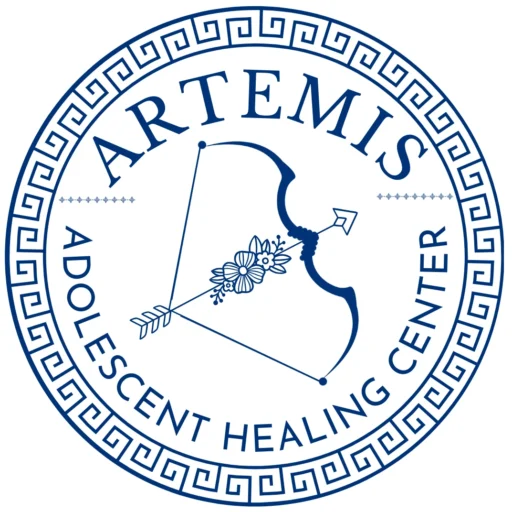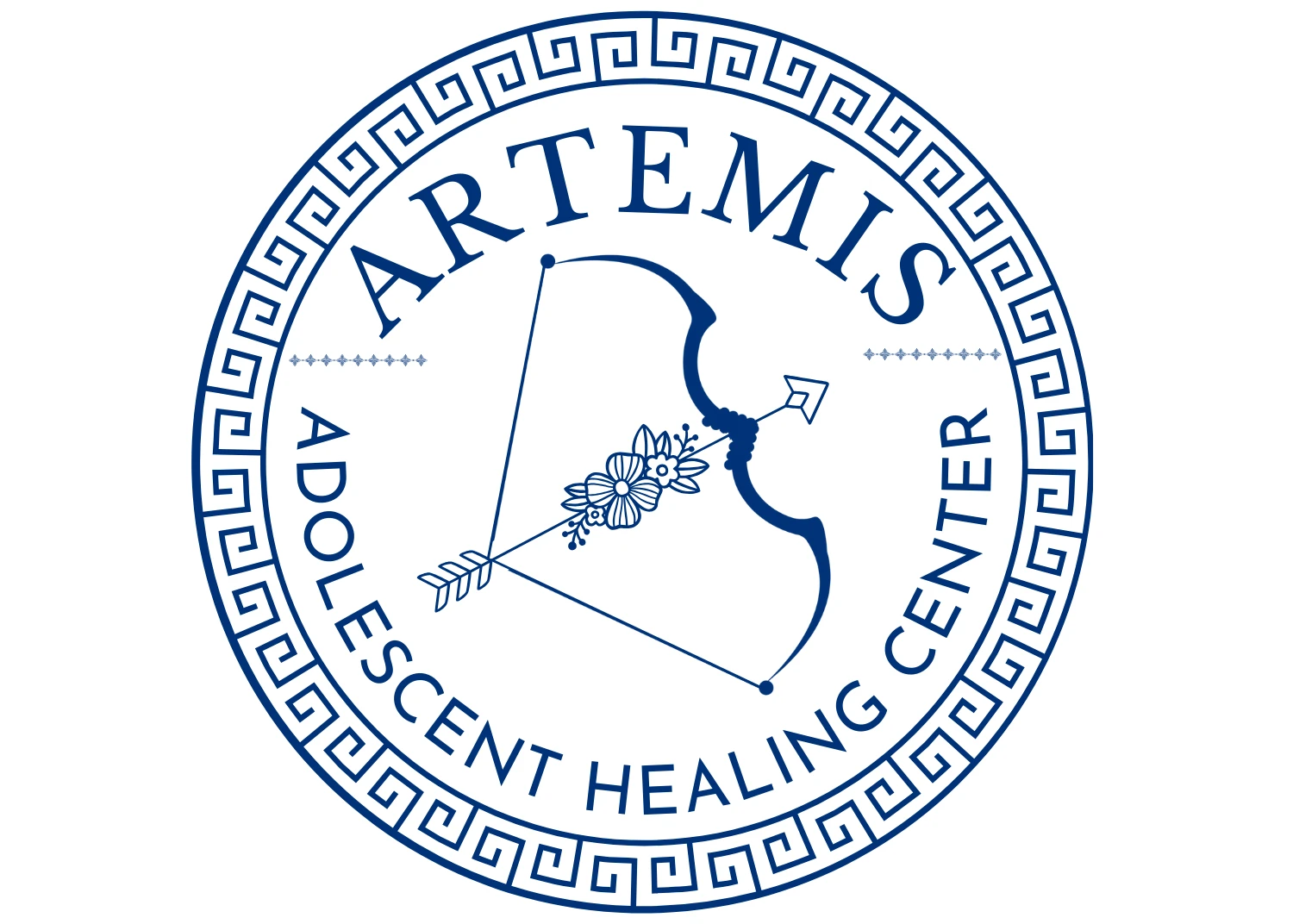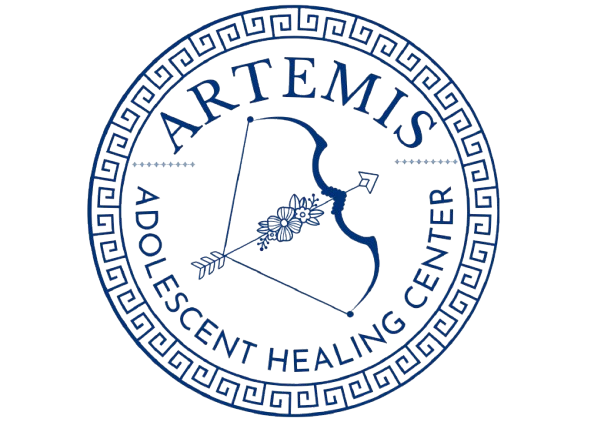Family Involvement in Teen Substance Abuse and Mental Health Recovery
Using family therapy for teens in recovery is a great way to continue the progress that has been made up to this point. If a teen in your life is in the recovery process, involving the family in this journey can help create a powerful support system that will be a valuable resource for the inevitable challenges to come.
Family therapy sessions are a great way to make sure everyone in the family is on the same page. Problems with substance abuse can strain relationships and harm family dynamics, but that damage doesn’t have to be permanent. Guided by mental health professionals, functional family therapy can go a long way toward rebuilding what was torn down.
To get family members involved in your teen’s recovery, work with Artemis Adolescent Healing Center right away. The in person family therapy sessions we offer have been proven to deliver results and help teens continue on the right path. We’d love to have the opportunity to serve your family soon.
Get Effective Detox and Rehab Options at Artemis
Why Family Involvement is So Important in Recovery
In most cases, the family of a young person who is struggling with addiction or mental health will be the most reliable source of support. Friends tend to come and go, and they are often the source of some of the problems (especially in substance use situations). It’s family relationships that last the longest, as long as they are nurtured properly and given the time and attention they need to grow.
A big part of how a teen sees the world is shaped by the experiences they have had within the family. The home environment, the attitudes and beliefs of family members, and the behaviors of parents and siblings all play a role.
So, there really isn’t any way to separate the family dynamics from the individual. They are one and the same and need to be treated as such.
Research Into the Nature of Families and Addiction Recovery
Over the years, studies have shown that involving the family in treatment provides a number of benefits. Teens are more likely to complete their treatment program, for one thing, when the family is actively engaged. Relapse rates for substance use disorders are also reduced, and the improvements that are made in emotional and behavioral areas tend to be more sustained.
When a teen is in recovery for addiction or mental health disorders, or even both, everything looks brighter when the family is playing a positive role in the process. Healthy family interactions can provide a foundation for lasting recovery and better treatment outcomes.
How Addiction and Mental Health Issues Strain Families

Drug or alcohol use is hard on the person who is addicted to the substance. It may be just as hard on the rest of the family. There is a lot of damage done to relationships, and the trust that is lost during the addiction process may not be easy to rebuild.
Seeing a family therapist is often a necessary step to undo some of the harms listed below.
Broken Trust
It’s hard to imagine a situation where substance abuse problems didn’t lead to damaged trust within the family. Drug and alcohol use almost always comes along with things like secrecy and lying. Broken promises are common, as well. Many family members will feel like they can no longer count on the individual who has been fighting this addiction.
Even if the individual is able to maintain abstinence for an extended time, it could be tough to restore the trust that was lost along the way. Only through therapy sessions that involve the whole family unit is it going to be possible to restore what was lost.
Blame and Shame
There is a lot of finger-pointing and blaming associated with addiction or mental health issues. Parenting skills may be questioned. Families dealing with this issue might start fighting amongst themselves.
To improve treatment outcomes, it’s important for a mental health professional to understand family dynamics and know how to work within the family to get everyone back on the same page once again.
Confusion
Sometimes, it’s simply confusion that is at the heart of many of the difficulties that other family members face. They don’t understand how this happened. They can’t relate to what the teen is going through and don’t know why they would have turned to something like drugs or alcohol in the first place. This is particularly true if the home is a drug free environment.
One of the valuable aspects of family counseling is simply educating the family on how addiction works and its root causes. This new level of understanding can lead to more acceptance and forgiveness.
Denial or Enabling
It’s possible for family members to further the issue of addiction when they are in denial over the problem or exhibit enabling behaviors.
Many family counseling approaches have to break down these walls and get certain members of the family to acknowledge that this is a serious problem that needs to be addressed.
What to Expect in Family Therapy for Teens
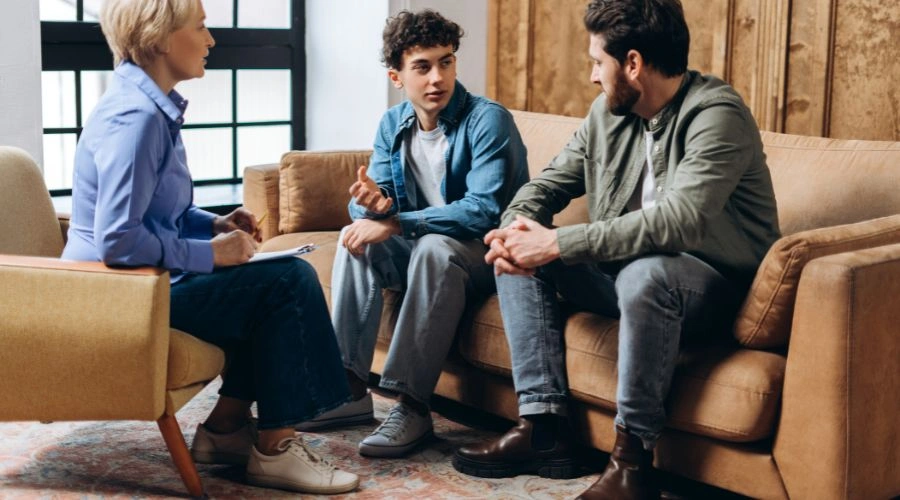
Family therapy sessions aren’t always easy. Group counseling comes with many advantages, but putting a variety of personalities in a room can create friction and tension. This is particularly true when family relationships are already strained.
If your family has not attended therapy sessions previously, it’s a good idea to have an understanding what is likely to take place. The process is likely to include at least some of the following.
Assessment and Goal Setting
This will happen early in the therapy process. The family will meet with the therapist to talk about the key goals they have for these sessions.
What are the biggest issues that the family is facing, and how can things get back on track?
Healing damaging relationships and learning how to properly support the teen in recovery will be top priorities in most cases.
Get Accredited Treatment Programs at Artemis
Building Communication Skills
Communication is critical when supporting someone in recovery. Unfortunately, communication often breaks down in times of stress. Family therapy can teach everyone important skills that they can use to effectively communicate even when life is difficult.
These skills include assertive speaking, active listening, and proper emotional regulation. Positive behaviors in communication will go a long way toward rebuilding a healthy family dynamic.
Role Exploration
The family system is made up of individuals who all play their own unique roles. To support recovery, it’s important that everyone knows their role and is comfortable with it. If someone’s role in the family is impacting others negatively, that can come out in these sessions and be addressed.
Through the combination of healthy communication and better understanding of roles, things will already be on a better track.
Conflict Resolution
It’s important to understand that simply going through family therapy doesn’t mean that everything will be peaceful and happy forever. Conflict is inevitable within family units.
When family problems do arise, having the coping skills necessary to navigate them in a healthy way is critical. Through therapy, everyone can learn to be solution-focused, rather than trying to assign blame.
What are the Typical Kinds of Family Therapy?

Several different models of family therapy have been developed. The right one will depend on the needs of the teen in question, as well as the family as a whole. Let’s take a quick look at the various approaches you might encounter in this process.
Structural Family Therapy
This type of therapy is focused on rebuilding the family system in a way that has healthy boundaries and a clear hierarchy. If the roles within the family have become blurred during this difficult time, this type of therapy can help restore order.
Strategic Family Therapy
Patterns of interaction that are leading to problems can be assessed and improved in this type of therapy. There will be specific, actionable changes implemented that should help everyone work better together and avoid the pitfalls that will take away from the goal of lasting recovery for the teen.
Functional Family Therapy
This type of evidence-based therapy is commonly used when teens are struggling with substance abuse. It uses both family systems theory and Cognitive Behavioral Therapy to get the family engaged and to mobilize behavior change.
Knowing the Signs That Family Therapy Sessions Are Needed
How do you know if family therapy is warranted in your situation? There are some clear signs that this is a good idea, and it all starts with communication. If you notice that communication between family members has broken down, or if it is consistently negative, intervention may be in order. Improving the tone and style of communication within the family is perhaps the best thing that therapy sessions can accomplish.
It’s also a good idea to use therapy sessions to address matters of lost trust. If you are feeling like you don’t inherently trust others in your family, or if there is lost trust between other members of the family, a therapist can help rebuild those bonds. This is a part of the recovery journey that can take a long time, but is well worth the effort.
One other sign that therapy is needed is when the parents within the family feel helpless or lost in this situation. Even if the teen is in recovery currently, the parents might not know what to do next or how to be supportive in the right way. Family therapy can help parents build the skills necessary to navigate what is ahead.
How to Prepare for Family Therapy
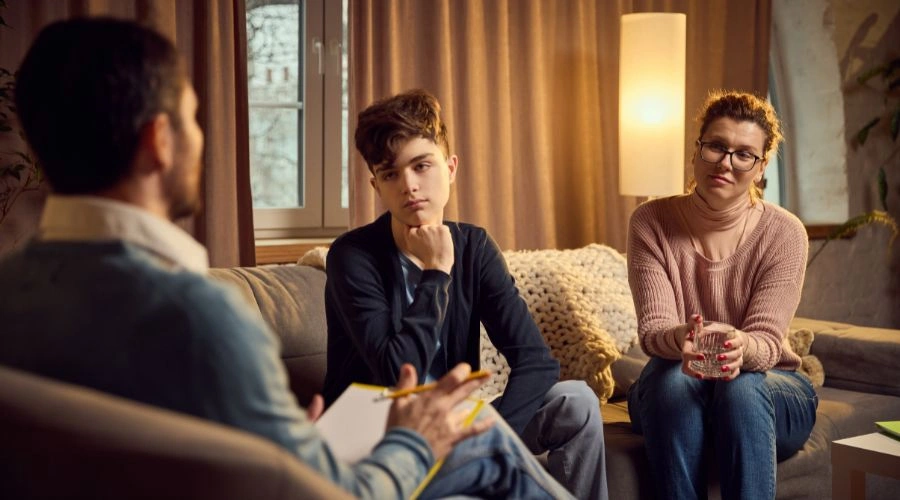
The best way to describe how to prepare for family therapy is to say that everyone simply needs to be open. The whole family needs to be open to change, and willing to look at their own behaviors to see how they could be adjusted. If the members of the family can take feedback from the therapist and each other, good things are sure to follow.
It’s also a good idea to set realistic expectations. Healing takes time. A single therapy session isn’t going to fix everything that has been broken. Be patient and consistent with your approach to therapy and the results will start to compound as time passes.
Up To 100% of Rehab Costs Covered By Insurance
Bring the Family Together at Artemis: Seek Support Today
Lasting recovery is far more likely for your teen if the entire family is on board and ready to be supportive. It’s been seen time and time again that family support is a huge part of addiction treatment and recovery. Substance abuse treatment is a long and winding road, and having as many supportive people around as possible makes a big difference.
So, let’s get started today. Our family therapy program will help you and your loved ones understand what the teen in your life has been going through and how you can be helpful. They’ve already done a lot of addiction treatment work, and now you and the rest of the family can join the fight, as well. Give us a call today confidentially to learn more.
